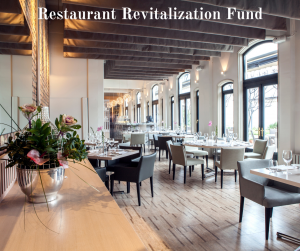Eligible restaurants and other dining establishments are entitled to apply to the U.S. Small Business Administration for a $28.6 billion grant program under the American Rescue Plan Act of 2021, as established in section 5003 of the legislation.
The SBA recently released a Program Guide that lays out the details of the grant eligibility under the Restaurant Revitalization Fund that foodservice outlets might want to review before applying. Among the key points of consideration promulgated in that publication are:
- The covered period to spend the funds ends on March 11, 2023. The statute had left this open to either December 31 of this year or a date no later than two years after the law’s enactment, at the discretion of the SBA administrator, who chose the latter.
- Those applying as small businesses owned by women, veterans, or socially and economically disadvantaged people, who will receive a 21-day priority period, are allowed to self-certify that they’re at least 51% owned by any combination of the priority groups.
- Applicants do not need to register for either a Data Universal Numbering System (DUNS) number or a Commercial and Government Entity (CAGE) code, nor do they need to register on SAM.gov.
- Grant payment calculations are based on one of three formulas, all of which subtract 2020 gross receipts and any PPP loans previously received: those operating before 2019 start with 2019 gross receipts, those that opened in 2019 start with average 2019 monthly gross receipts times 12, and those that have opened since January 1, 2020, or haven’t yet opened, start with the amount spent on eligible expenses between February 15, 2020 and March 10, 2021.
- To verify gross receipts, applicants will need to submit some combination of business tax returns for 2019 and 2020; IRS Form 1040 Schedule C or Schedule F, or Form 1065; income, profit and loss, and other financial statements; bank statements; and point of sale reports such as IRS Form 1099-K.
- Bakeries, brew pubs, breweries, distilleries, inns, taprooms, tasting rooms and wineries must show that their gross receipts are at least 33% based on on-site sales of food and beverages.
- So the SBA can substantiate tax information, all applicants are required to complete IRS Form 4506-T.
- Applicants operating under a Chapter 11, 12 or 13 bankruptcy with an approved plan of reorganization can still apply—but not those without such a plan, or who filed for Chapter 7, or are liquidating under Chapter 11.
- As with other SBA pandemic relief programs, restaurants can apply on the SBA’s grant program website. This time, applicants have the additional options of either calling (844) 279-8898, or through a customized process laid out by those who already patronize an SBA Restaurant Partner, which are listed here.
The SBA started accepting applications on May 3, and many in the industry (as well as the SBA itself) do not expect funds to last all that long—so apply ASAP!
 Chicago Business Attorney Blog
Chicago Business Attorney Blog


